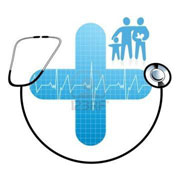

New Health Law Takes Hold
By Maya Rhodan
NNPA Washington Correspondent
WASHINGTON.D.C. (NNPA) – Since the Affordable Care Act became law on March 22, 2010, many changes have occurred within the American healthcare system.
· About 71 million Americans received access to free preventative care treatments such as wellness visits, mammograms, and flu shots.
· More than 3.1 million uninsured young adults were able to stay on their parents insurance until they turn 26.
· In excess of 6 million seniors and people with disabilities have saved billions on prescription drugs as a result of expanded Medicare coverage.
Some of biggest provisions, however, including the Health insurance Marketplace that allows people to search for and buy quality insurance programs that cater to their needs, haven’t been implemented yet.
That program rolls out on Oct. 1.
For three years the Affordable Care Act has been redefining how the government handles health care. Yet, according to a recent Kaiser Family Foundation study, millions of the people it was put in place to help don’t know how it will affect them.
According to the March 2013 Public Opinion on Health Care Issues Tracking Poll, not only do 40 percent of Americans report holding an unfavorable view of the law, 57 percent of Americans say they don’t understand its impact.
The most unaware—the un-insured and people with low incomes, the two groups the law was enacted to help most.
Sixty-seven percent of the uninsured and 68 percent of those with incomes below $40,000 do not understand how the law will affect them.
And that’s despite the efforts of the U.S. Department of Health and Human Services, which launched the site healthcare.gov in July 2010 to “provide unprecedented transparency into the health care marketplace.”
The lack of knowledge could be a result of political affiliation. According to the Kaiser Report, about 68 percent of Republicans view the law unfavorably along with 45 percent of Independents. Fifty-eight percent of Democrats have a favorable view of the law as well as 31 percent of Independents.
It could also be a lack of access to information – about 20 percent of Americans don’t use the Internet, according to a 2012 Pew research study.
Regardless of what people know and how they feel Anton Gunn, a director at the Department of Health and Human Services, says the groundbreaking health care reform law will affect the poor and uninsured.
“The first thing they need to know is that they’ll get better access to care and they’ll be able to get coverage,” Gunn says.
He notes that many African Americans who don’t currently have insurance will benefit from the reform, notably single males who don’t qualify for Medicaid and can’t afford private insurance.
“Because of the Affordable Care Act, they’ll be able to buy insurance and in some states they’ll be able to get on a Medicaid program,” Gunn says. By 2014, nearly all people under 65 who make up to $15,000 per year will be eligible. “The most important fact is people will have options.”
For African Americans specifically, those impending options mean 3.8 million uninsured members of the African American community will gain coverage by 2016.
Gunn also promises greater access to information in the coming months, including
The Affordable Care Act will also continue to address the need for medically underserved communities to gain access to health care. Medically underserved areas are disproportionately rural and urban.
“Across the country there is a significant need for primary care services and very few options for care,” Amy Simmons, the director of communications for the National Association of Community Health Centers based in Bethesda, Md., said via email. “We know that over 500 communities submitted applications for a new health center in FY2011 that went unfunded.”
This past Thursday, Congress approved legislation that provides $3.1 billion in funding for community health centers in 2013, representing a $300 million increase in funding.
The funding will allow health centers to expand access to primary care across the nation and the training of community navigators who will be certified to have people access both plans and benefits.
“It won’t just be online,” Gunn says. “Information will be available in person as well. Our goal is to make it as local and available as possible.”


Be the first to comment